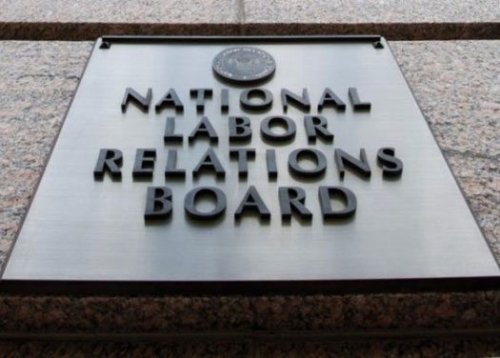By Joseph Rousos-Hammond
The National Labor Relations Board (“Board”) has issued a new rule that makes it more likely for separate business entities to be considered “joint employers” and, therefore, liable for the other entity’s violations of the National Labor Relations Act. On October 27, 2023, the Board reversed and rescinded its 2020 rule that required “substantial direct and immediate control over one or more essential terms and conditions” of employment for an entity to be considered a joint employer. Effective December 26, 2023, the Board will deem entities “joint employers” even if an entity possesses such control but never uses it or if the entity exercises it indirectly, such as through an intermediary.
The definition of joint employment has been hotly contested in recent years, beginning with the Obama Board’s 2015 decision in Browning-Ferris Industries. There, the Board ruled that an entity need not exercise actual control to qualify as a joint employer; instead, the entity only needs a contractual right to exercise that control, even if it never uses it or only does so indirectly. The Trump Board reversed course in a 2017 decision that overturned Browning-Ferris but was rescinded in 2018 because of a Board Member’s conflict of interest. The Board later remedied the issue through rulemaking in 2020, adopting the “substantial direct and immediate control” standard.
The Board’s new rule essentially returns to the Browning-Ferris standard, meaning that businesses have more expansive collective bargaining obligations and a greater risk of liability for labor law violations of their subcontractors, franchisees, staffing agencies, and other affiliated entities. A Board fact sheet on the new rule can be found here. This area of labor law is rapidly developing, making sound legal advice especially important. The attorneys at Farhang & Medcoff are available to assist you in ensuring legal compliance with these and other recent changes.
The National Labor Relations Board (“Board”) has issued a new rule that makes it more likely for separate business entities to be considered “joint employers” and, therefore, liable for the other entity’s violations of the National Labor Relations Act. On October 27, 2023, the Board reversed and rescinded its 2020 rule that required “substantial direct and immediate control over one or more essential terms and conditions” of employment for an entity to be considered a joint employer. Effective December 26, 2023, the Board will deem entities “joint employers” even if an entity possesses such control but never uses it or if the entity exercises it indirectly, such as through an intermediary.
The definition of joint employment has been hotly contested in recent years, beginning with the Obama Board’s 2015 decision in Browning-Ferris Industries. There, the Board ruled that an entity need not exercise actual control to qualify as a joint employer; instead, the entity only needs a contractual right to exercise that control, even if it never uses it or only does so indirectly. The Trump Board reversed course in a 2017 decision that overturned Browning-Ferris but was rescinded in 2018 because of a Board Member’s conflict of interest. The Board later remedied the issue through rulemaking in 2020, adopting the “substantial direct and immediate control” standard.
The Board’s new rule essentially returns to the Browning-Ferris standard, meaning that businesses have more expansive collective bargaining obligations and a greater risk of liability for labor law violations of their subcontractors, franchisees, staffing agencies, and other affiliated entities. A Board fact sheet on the new rule can be found here. This area of labor law is rapidly developing, making sound legal advice especially important. The attorneys at Farhang & Medcoff are available to assist you in ensuring legal compliance with these and other recent changes.


